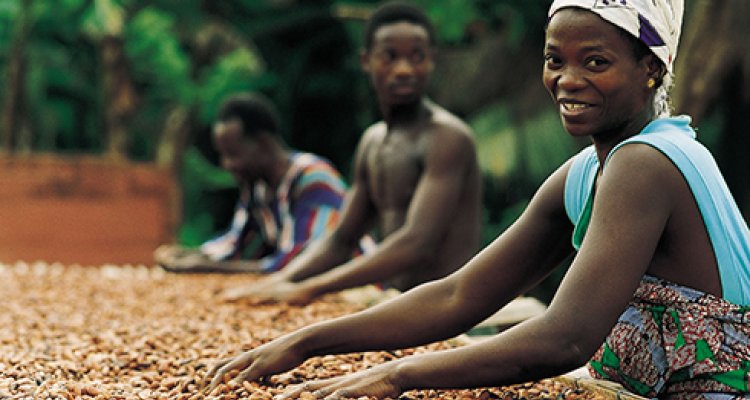
Project
Cocoa crop improvement, farms and markets (CoCIfaM)
Cocoa farmers in West Africa face poor productivity due to constraints at the crop, field, farm and sector level. To ensure farmers’ livelihoods, yields need to increase sustainably.
As part of the NWO Global Challenges Programme (GCP), the project 'Cocoa crop improvement, farms and markets: a science-based approach to sustainably improving farmer food security in Ghana and Ivory Coast', coordinated by Dr Maja Slingerland and prof Ken Giller, researchers collaborate with international partners and partners in Ghana and Ivory Coast to enhance the sustainability of cocoa farming.
This interdisciplinary project aims for science-based, sustainable intensification of cocoa production assuring high and stable production now and under future climate change and policy scenarios. It investigates the effects of field level practices on cocoa productivity. The suitability of different (combinations of) practices for different smallholder farm systems will be explored. Moreover, effective delivery of the services supporting these practices will be co-developed with public and private partners.
The research by Faustina Obeng Adomaa, PhD candidate at the Knowledge, Technology and Innovation group, responds to increased calls for inclusiveness in global commodity chains. A variety of approaches and intervention strategies enable participation of small producers in the processes and outcomes of growth and development within global commodity chain chains. This is especially relevant in cocoa: large numbers of smallholder producers supply beans to traders, exporters and finally chocolate manufacturers. In the midst of increasing integration of smallholders into value chains, small producers at the base of global agricultural value chains continue to face challenges that threaten their livelihood and food security.
Faustina’s research focuses on inclusiveness within service delivery initiatives to smallholder cocoa famers in Ghana and Ivory Coast. In this study, four dimensions of inclusion are analysed: geographical embeddedness of the initiatives, the terms of inclusion of smallholders in the initiatives, recognition given to the knowledge and priorities of smallholders in the initiatives, and hybrid governance arrangement between the private and public sectors within the initiatives. The broad objective of this study is to co-develop models for effective public/private service delivery at scale fitting the complexity of the cocoa sector in Ghana and Ivory Coast.
More information about the project on the website of Knowledge4food.